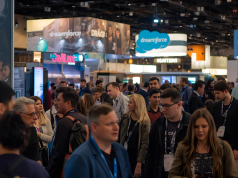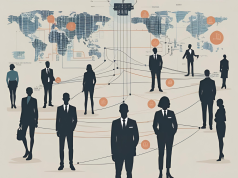In an age where innovation and creativity are paramount to the success of any enterprise, embracing diversity is not just ethically sound but also economically prudent. Among the heterogeneous fabric of diversity lies a potent yet oft-overlooked thread: neurodiversity. Neurodiversity refers to the variation in the human brain regarding sociability, learning, attention, mood, and other mental functions. It is a recognition that different neurological conditions represent normal variations in the human genome. This includes conditions such as autism, ADHD, dyslexia, and others that contribute to the unique proficiencies and perspectives in a workforce. As companies strive to adopt inclusive environments that mirror the society they serve, integrating neurodiversity into their workplace culture has become essential.
The Journey Beyond Compliance
Historically, firms have concentrated on complying with legal mandates such as the Americans with Disabilities Act (ADA), which ensures that people with disabilities are not discriminated against in the workplace. However, to truly harness the potential of neurodiverse talent, it’s crucial to move beyond mere compliance. Companies should aim to understand and appreciate the distinctive strengths that neurodiverse individuals bring to the table. This can lead to the development of diverse teams that are more innovative and capable of solving complex problems from unique angles.
Creating Supportive Structures
To accommodate the needs of neurodiverse employees and foster an environment where they can thrive, it’s important to implement supportive structures. This may include tailored onboarding programs, mentoring, flexible work arrangements, and the use of assistive technologies. Providing awareness training for all staff helps in cultivating an empathetic workplace culture that can accommodate different styles of communication and interaction.
Aligning with the Future of Work
The future of work demands agility, flexibility, and the ability to constantly adapt to new challenges. Neurodiverse teams are naturally equipped for this landscape, as they often excel in out-of-the-box thinking and possess a high level of specialization in their areas of interest. They can be instrumental in driving innovation, which is a key competitive advantage in the current global economy.
Societal and Economic Benefits
The inclusion of neurodiverse individuals can have profound societal impacts. It promotes equality and helps reduce the unemployment rate among neurodiverse populations. Economically, such inclusivity can lead to increased productivity and reduced turnover. Firms can access untapped talent pools that provide a unique edge in the market.
Challenges and Misconceptions
There are challenges inherent in integrating neurodiverse employees, including misconceptions about their abilities and the accommodations they may require. However, with the proper support and understanding, these challenges can be overcome. Companies must be willing to learn and adapt their practices to create truly inclusive workplaces.
Case Studies of Success
Leading companies across various industries have already begun reaping the rewards of neurodiverse inclusion. Organizations like Microsoft, SAP, and JPMorgan Chase have implemented programs specifically designed to attract and support neurodiverse talent. These case studies provide valuable insights into best practices and demonstrate the tangible benefits of such initiatives.
The Role of Government Policy
Government policies play a pivotal role in shaping the employment landscape for neurodiverse individuals. Policies that incentivize diversity and provide support for both employees and employers can significantly enhance neurodiverse inclusion efforts. A robust legal framework ensures the rights of neurodiverse individuals are protected while encouraging businesses to explore innovative approaches to diversity.
Conclusion
Neurodiversity is an asset that forward-thinking companies cannot afford to overlook. By proactively embracing the strengths of neurodiverse individuals, firms can build resilient, innovative teams poised for the future. We must provoke thought and actions that establish a healthy culture benefiting not only neurodiverse employees but the entire organization. It’s time to bridge the gap and cultivate a workplace that truly reflects the diversity of the human experience.

























